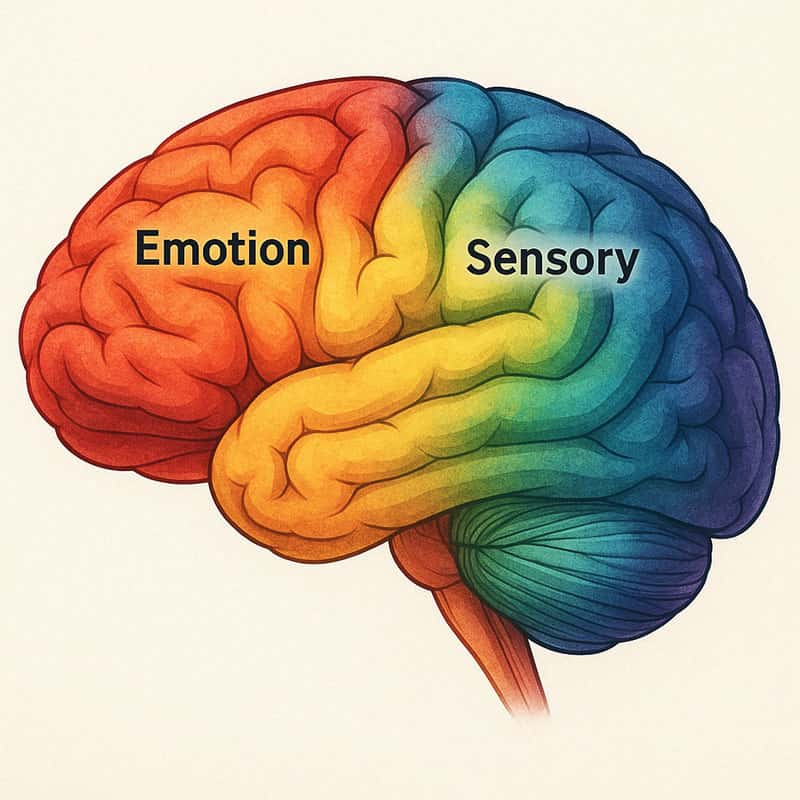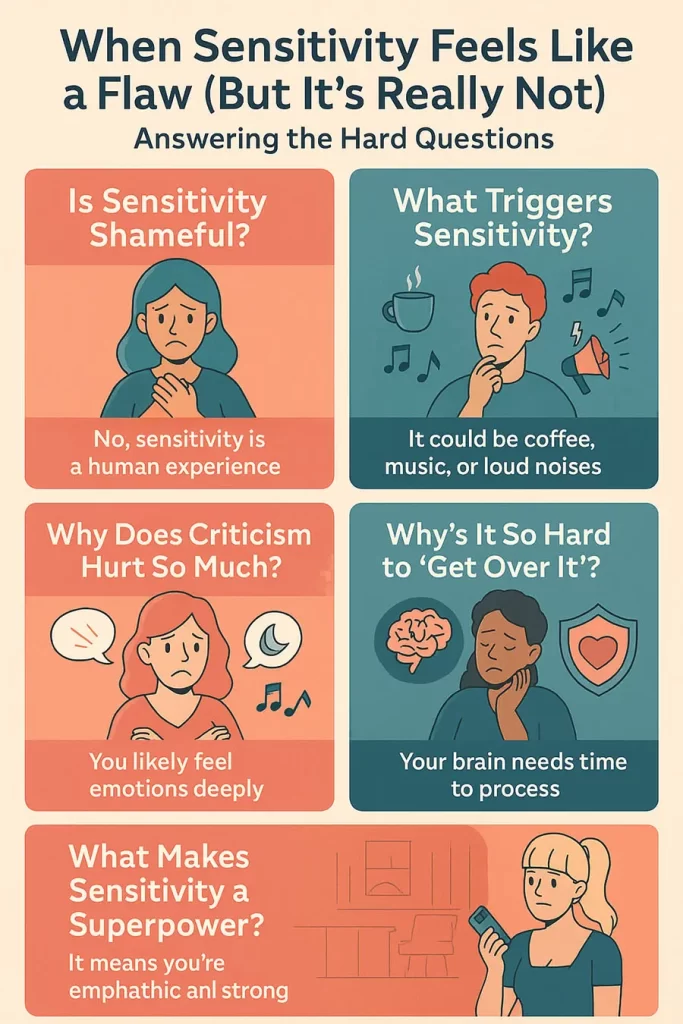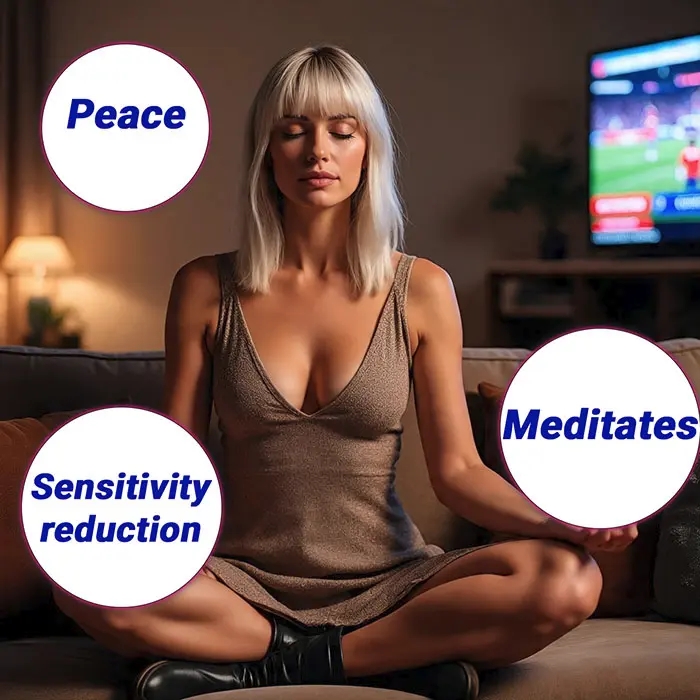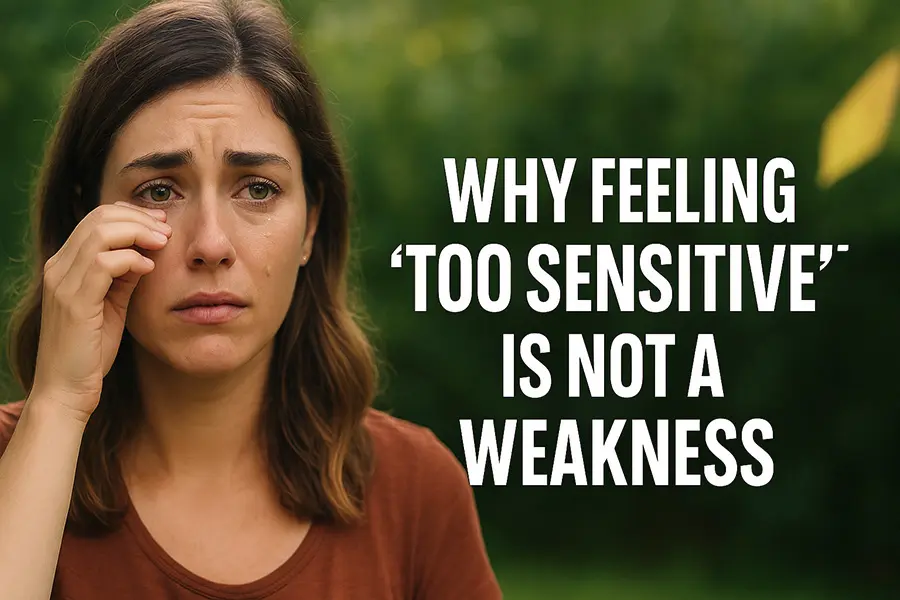Ever been called “too sensitive” and felt like you’re somehow broken? You’re not. Discover why sensitivity is a powerful strength, how to overcome the shame tied to it, and practical ways to thrive as a highly sensitive person. Let’s turn your emotional depth into your superpower! 😊
Introduction
I was 15, sitting in history class, when a documentary about war came on. Everyone else seemed fine, but I was fighting back tears. The teacher noticed and said, “You’re too sensitive, kid.” That phrase stuck like glue, making me feel like my emotions were a defect. For years, I tried to toughen up, hide my tears, and act like I didn’t care so much. But deep down, I knew I wasn’t broken I was just wired differently. 😔
If you’ve ever been called “too sensitive,” you know the sting. Maybe you cry at commercials, get overwhelmed in loud rooms, or feel other people’s pain like it’s your own.
Society often tells us to “get over it,” but what if your sensitivity isn’t a flaw? What if it’s a strength in disguise?
In this article, we’re diving deep into why sensitivity gets shamed, how it’s actually a powerful trait, and practical ways to embrace it without guilt. Drawing from three insightful pieces, we’ll explore the science, the struggles, and the beauty of being highly sensitive. Ready to stop apologizing for feelin’ deeply?

What Does “Too Sensitive” Really Mean?
When someone says you’re “too sensitive,” what they’re really saying is you’re not easy to ignore. You notice the little things a friend’s slight frown, the way a room feels too loud, or the beauty in a quiet moment. You might overthink a casual comment or feel a wave of emotion during a movie. In a world obsessed with efficiency and “toughness,” this depth can feel out of place.
But here’s the thing: sensitivity isn’t about being dramatic. It’s about processing the world more deeply. You’re not overreacting you’re experiencing life vividly. As one post on PathSerenity puts it, “You’re not too much. You’ve just been in places that were too little.” Sensitivity means you care, and that takes guts.

Why Sensitivity Gets Shamed
Why does being sensitive often come with a side of shame? It starts with society. We live in a culture that glorifies stoicism think “keep calm and carry on.” Emotions, especially big ones, are seen as messy or weak. If you cry easily or get overwhelmed, you might’ve been told to “toughen up” or “stop overreacting.” Those words can burrow deep, making you feel like your feelings are wrong.

“Highly sensitive people are not weak; they’re wired to process the world more deeply.” Dr. Elaine Aron
📍 Psychology Today – The Highly Sensitive Person
- Self-Care for Highly Sensitive People: How to Stay Soft in a Loud World
- What Is Mindful Living and How Can You Start Today?
- The Strange Guilt of Having Needs (And Learning to Ask Anyway)
This shame often has roots in childhood. Maybe your parents dismissed your tears as “silly” or you were the family caretaker, always putting others first. For me, it was my dad saying, “Don’t be so soft,” when I got upset about a stray dog. Over time, I started believing my sensitivity was a problem.

It’s not just personal society plays a role too. Sensitive people can make others uncomfortable because they mirror emotions others avoid. Your tears might remind someone of their own suppressed feelings, so they push back with “You’re too much.” But that’s on them, not you.
The Science of Sensitivity

Sensitivity isn’t just a personality quirk it’s a neurological trait. Dr. Elaine Aron, who coined the term Highly Sensitive Person (HSP), found that about 15-30% of people have sensory processing sensitivity (SPS).
This means their nervous systems process stimuli like emotions, sounds, or social cues more deeply. Studies show HSPs have increased activity in brain areas tied to attention and emotional processing.
This wiring can make you more reactive to things like loud noises, bright lights, or others’ moods. It’s why you might feel drained after a crowded party or pick up on a friend’s stress before they say a word. About 50% of this trait is genetic, while the other half comes from your environment, like growing up in a chaotic home where you had to be hyper-aware. Research also links high sensitivity to emotional loneliness, but not because you’re flawed because you feel so deeply.
Sensitivity as a Superpower
Far from being a weakness, sensitivity is a gift. It’s linked to creativity, empathy, and intuition. Think about Albert Einstein, whose deep sensitivity fueled his groundbreaking ideas, or Princess Diana, whose empathy touched millions. In the arts, Vincent van Gogh’s intense emotions created masterpieces, and Alanis Morissette has spoken about how her sensitivity shapes her music.

Sensitive people are often the ones who:
- Pause when others rush, noticing what’s unsaid in a room.
- Hold space for pain, offering comfort without flinching.
- Create with depth, turning emotions into art or ideas.
- Lead with empathy, like Jacinda Ardern, whose sensitive leadership inspired a nation.
As Forbes notes, HSPs can be top performers in the workplace, though they may need strategies to avoid burnout.
Sensitivity in the LGBTQ+ Community
For LGBTQ+ folks, sensitivity can carry extra weight. Many face minority stress daily microaggressions or outright discrimination that heightens their awareness of social cues. Being told you’re “too sensitive” when reacting to a misgendering or a dismissive comment can sting deeply.

I’ve seen friends in the community shrink their emotions to avoid being labeled “dramatic,” which only adds to the shame. Finding affirming spaces, like those offered by The Trevor Project, can help sensitive LGBTQ+ individuals feel seen and valued, turning their empathy into a tool for community-building.
Practical Ways to Embrace Your Sensitivity
Living as a sensitive person doesn’t mean you’re doomed to feel overwhelmed. Here are some real, doable ways to thrive:
- Set Sensory Boundaries: Use noise-canceling headphones or dim lights. I started carrying earplugs to concerts, and it’s a game-changer. 😎
- Pre-Recovery Time: Before a big event, take 10 minutes to breathe deeply or meditate. It’s like charging your emotional battery.
- Label Your Emotions: Name what you’re feeling “This is anxiety mixed with sadness.” It makes the swirl less scary.
- Curate Your Media: Skip violent shows if they hit too hard. I stopped watching true crime after it kept me up at night.
- Opt Out When Needed: It’s okay to leave a party early. Your nervous system is your home protect it.
- Practice Self-Compassion: Try affirmations like, “I’m allowed to feel deeply.” Journaling helped me stop apologizing for my tears.
For more tips, check out Self-Care for Highly Sensitive People.

Sensitivity in Everyday Life
At Work: Sensitive people can shine in roles requiring empathy or creativity, but open offices or harsh feedback can be tough. Communicate your needs like a quieter workspace or take short breaks to recharge.
In Relationships: Your empathy makes you a great partner or friend, but you might absorb others’ emotions. Practice saying, “I need a moment to process,” to set boundaries without guilt.
In Social Settings: Crowds can be overwhelming. I once left a friend’s wedding early because the noise was too much. Instead of feeling bad, I texted her later to explain, and she totally got it.
For more on navigating relationships, see The Quiet Despair of Feeling Too Much.

Overcoming Shame and Building Resilience
Healing from sensitivity shame starts with self-acceptance. Here’s how:
I started therapy last year and learned to trust my gut instead of second-guessing my reactions. It’s like giving my inner child a hug. 🤗
- Validate Your Feelings: Your emotions are real and okay. Try saying, “I feel this, and it’s valid.”
- Challenge Negative Thoughts: When you think, “I’m too much,” counter with, “I’m just right for me.”
- Find Your People: Seek friends or groups who get your sensitivity. Online communities like Sensitive Refuge are great.
- Try Grounding Techniques: Box breathing (inhale 4, hold 4, exhale 4, hold 4) calms your nervous system.
- Explore Therapy: Polyvagal-informed therapy can help regulate your nervous system. Polyvagal Institute has resources.

FAQs About Being Highly Sensitive
Sometimes. Sensitivity can be genetic, but trauma or chaotic childhoods can heighten it. It’s not a flaw either way.
You can’t change your wiring, but you can manage overwhelm with boundaries and self-care.
your depth might mirror their suppressed emotions, making them uncomfortable. It’s not about you.
Practice self-compassion and surround yourself with people who validate your feelings.
Yes! It’s great for creative, empathetic, or leadership roles, as long as you manage stress.
Conclusion: Your Sensitivity Is Your Gift

You’re not too sensitive you’re tuned in. In a world that often feels too loud, your ability to feel deeply is a rare and beautiful gift.
From Einstein’s genius to Diana’s compassion, history shows that sensitive people change the world. Stop hiding your tears or apologizing for your depth.
With boundaries, self-care, and the right people, you can turn your sensitivity into a superpower. So, next time someone says, “You’re too much,” smile and say, “I’m just enough.” 🌼
For more on embracing your emotions, check out The Power of Emotional Honesty.
Resources related to this topic
- Psychology Today: Emphasizes that sensitivity is not a flaw, but a strength when used constructively .
- Harvard Health (Medical School): Presents emotional intelligence as a learned set of skills that enhance empathy, communication, and well-being .
Related articles I recommend not to miss
✨ Last updated on 11.08.2025











Leave a Reply